Exploring Lifep04 Batteries: A Comprehensive Comparison of Performance and Efficiency
Table of Contents
- Understanding the Basics of Lifep04 Batteries and Their Unique Attributes
- Comparative Analysis of Lifep04 Battery Performance Metrics
- Evaluating Efficiency: Lifep04 Batteries vs. Other Lithium-based Solutions
- Real-world Applications of Lifep04 Batteries: A Performance Perspective
- Sustainability and Lifep04 Batteries: Impact on the Environment
- Future Trends in Lifep04 Battery Technology and Their Implications
- FAQS
- Conclusion
- Related Posts
In recent years, the demand for efficient energy storage solutions has surged, driven by the rise of renewable energy sources and the increasing need for sustainable power alternatives. Among the various battery technologies, Lifep04 batteries, known for their superior safety, stability, and longevity, have gained significant traction. According to industry reports, Lifep04 batteries exhibit a cycle life of over 2,000 charge cycles, making them a preferred choice for applications ranging from household energy storage systems to electric bicycles.
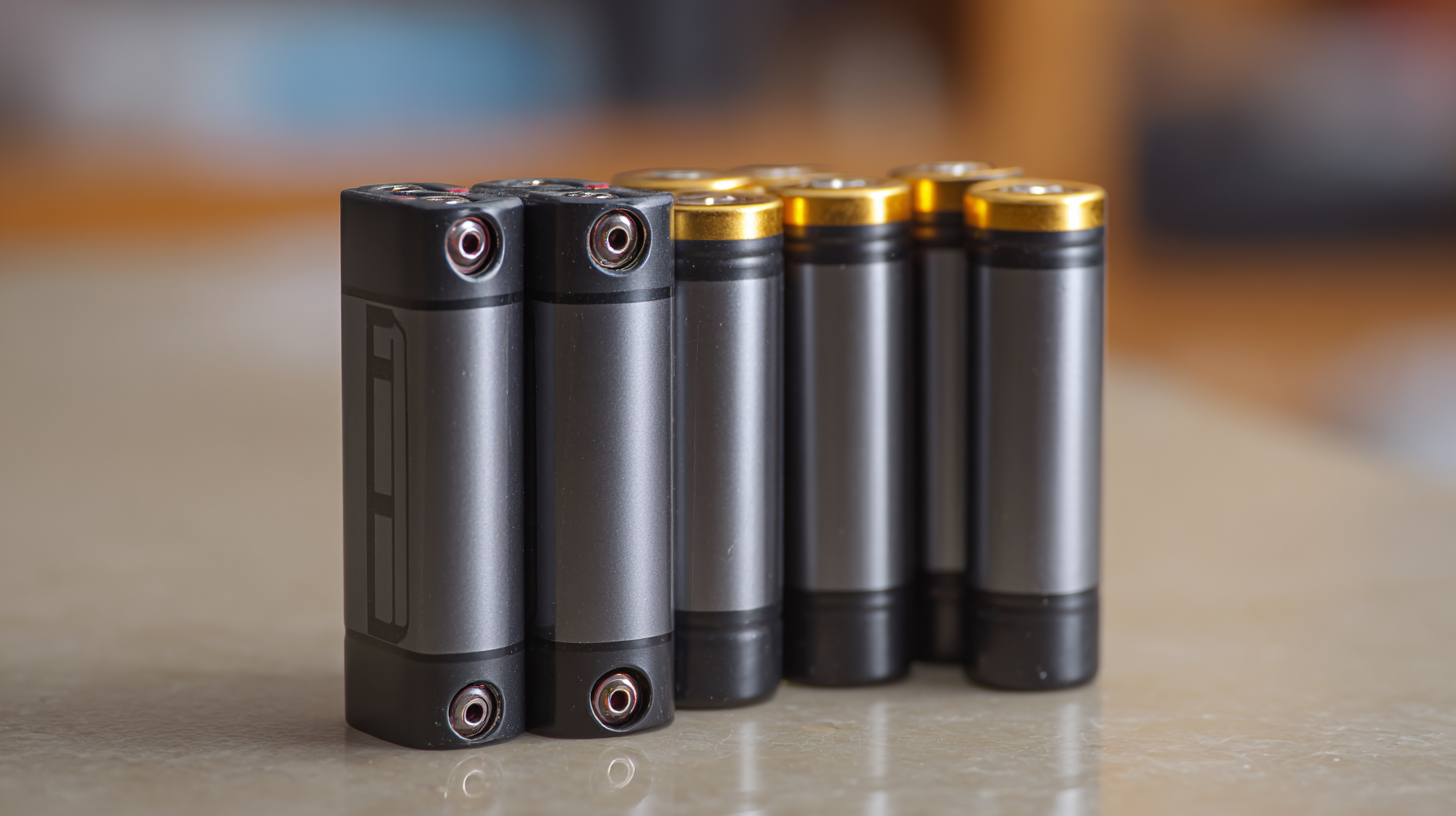
Roofer Electronics Technology (Shanwei) Co., Ltd., with over 27 years of experience in R&D and manufacturing, has established itself as a leader in lithium battery solutions. Our expertise in this field allows us to provide high-performance Lifep04 battery products tailored to diverse applications, ensuring reliability and efficiency that meet the demands of modern energy consumers.
Understanding the Basics of Lifep04 Batteries and Their Unique Attributes
Lifepo4 batteries, known for their unique attributes, are gaining traction in various applications due to their impressive performance and efficiency. Understanding the basics of these batteries reveals why they stand out in the crowded battery market. With a lithium iron phosphate composition, Lifepo4 batteries provide enhanced safety, longevity, and thermal stability. Their ability to withstand numerous charge and discharge cycles makes them ideal for electric vehicles and renewable energy storage systems.
One of the distinctive features of Lifepo4 batteries is their stable voltage output, which ensures consistent performance over time. This characteristic is particularly beneficial in scenarios where reliability is paramount. Moreover, Lifepo4 batteries have a lower environmental impact compared to traditional lithium batteries, making them a preferred choice for eco-conscious consumers. As industries continue to seek sustainable and efficient energy solutions, Lifepo4 batteries will likely play a crucial role in advancing technology while maintaining a commitment to environmental responsibility.
Comparative Analysis of Lifep04 Battery Performance Metrics
Lifep04 batteries, known for their stability and longevity, have gained significant traction in various applications, thanks to their impressive performance metrics. When analyzing their performance, several key factors come into play, including energy density, cycle life, and charging efficiency. According to the latest industry reports, Lifep04 batteries typically exhibit a cycle life of over 2,000 charge cycles, making them a reliable choice for energy storage solutions. In contrast, lead-acid batteries often cap at around 500-1,000 cycles, highlighting the long-term cost-effectiveness of Lifep04 technology.
Roofer Electronics Technology (Shanwei) Co., Ltd. leverages over 27 years of experience in lithium battery innovation to provide high-quality Lifep04 options. Our products deliver energy densities ranging from 90 to 160 Wh/kg, which supports extensive applications such as electric bicycles and power tools. Additionally, Lifep04 batteries offer charging efficiencies of around 95%, ensuring optimal energy usage. This efficiency, coupled with enhanced safety features and a lower environmental impact, positions Lifep04 batteries as a superior choice for both residential and industrial energy storage needs.
Exploring Lifep04 Batteries: A Comprehensive Comparison of Performance and Efficiency
| Battery Type | Nominal Voltage (V) | Capacity (Ah) | Energy Density (Wh/kg) | Charge Efficiency (%) | Cycle Life (Cycles) |
|---|---|---|---|---|---|
| LiFePO4 Standard | 3.2 | 100 | 100 | 95 | 2000 |
| LiFePO4 High Performance | 3.2 | 150 | 120 | 96 | 3000 |
| LiFePO4 Ultra High Capacity | 3.2 | 200 | 110 | 94 | 2500 |
| LiFePO4 Compact | 3.2 | 50 | 90 | 93 | 1500 |
Evaluating Efficiency: Lifep04 Batteries vs. Other Lithium-based Solutions
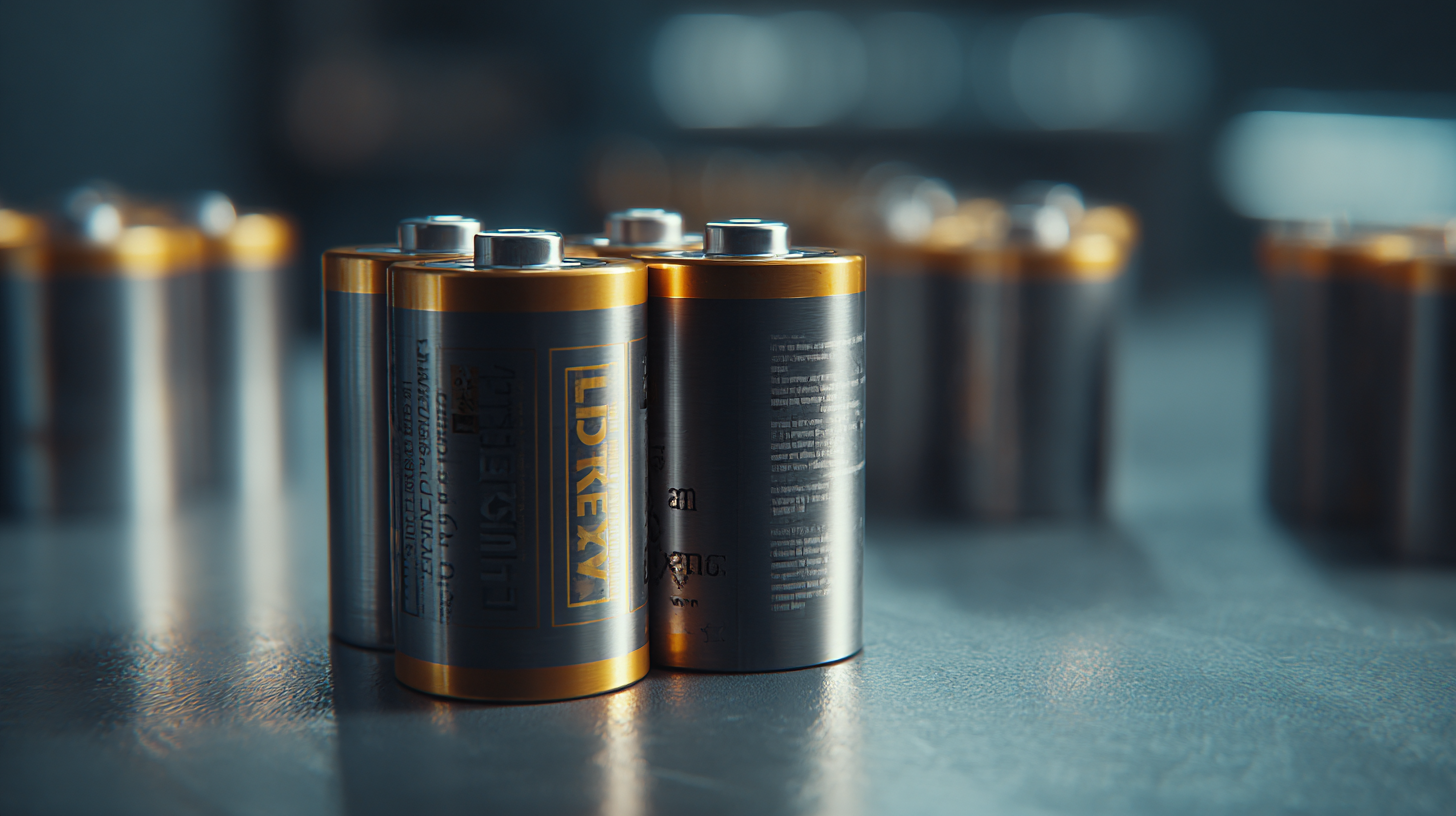 When it comes to lithium-based battery solutions, the Lifep04 (Lithium Iron Phosphate) battery stands out for its unique blend of efficiency and safety. Unlike traditional lithium-ion batteries that utilize lithium cobalt oxide or nickel manganese cobalt, Lifep04 batteries offer thermal stability and a much lower risk of combustion. Their chemical structure allows for faster charging and discharging rates, making them particularly suitable for applications requiring high power output, such as electric vehicles and renewable energy systems.
When it comes to lithium-based battery solutions, the Lifep04 (Lithium Iron Phosphate) battery stands out for its unique blend of efficiency and safety. Unlike traditional lithium-ion batteries that utilize lithium cobalt oxide or nickel manganese cobalt, Lifep04 batteries offer thermal stability and a much lower risk of combustion. Their chemical structure allows for faster charging and discharging rates, making them particularly suitable for applications requiring high power output, such as electric vehicles and renewable energy systems.
In direct comparison to other lithium-based batteries, Lifep04 batteries excel in longevity and cycle life, often providing over 2,000 charge cycles, significantly outpacing conventional lithium-ion options which may only last around 500-1,500 cycles. This makes Lifep04 a more cost-effective solution in the long run, as users benefit from reduced replacement frequency. Furthermore, Lifep04's performance is not overly compromised by temperature variations, making it a reliable choice across diverse environments. All these factors position Lifep04 batteries as a compelling alternative, especially in applications where efficiency and sustainability are paramount.
Real-world Applications of Lifep04 Batteries: A Performance Perspective
Lifep04 batteries have gained prominence in various real-world applications, particularly in electric vehicles (EVs) where performance and efficiency are paramount. These batteries offer several advantages over traditional lithium-ion alternatives, including longer lifespan and improved thermal stability. Real-time state-of-charge (SOC) estimation has become crucial in optimizing the performance of Lifep04 batteries within EVs, showcasing their capability to support advanced data-driven prognostics and health management systems. By leveraging big data, manufacturers can monitor battery performance in real time, ensuring efficient energy management and extending the battery lifecycle.
Moreover, recent developments in sensor technology have enhanced the monitoring of Lifep04 batteries. From mechanical and gas sensors to advanced imaging techniques, these innovations provide valuable insights into battery health, enabling timely interventions before capacity fading occurs. The integration of deep learning approaches for predicting the remaining useful life of batteries is also pivotal. By analyzing operational data, manufacturers can fine-tune the performance of Lifep04 batteries, making them more reliable and efficient for various applications, including energy storage systems and renewable energy integration.
Sustainability and Lifep04 Batteries: Impact on the Environment
In recent years, LiFePO4 (Lithium Iron Phosphate) batteries have gained significant attention for their sustainability features, particularly in contrast to traditional lithium-ion batteries. According to a report from the International Energy Agency (IEA), LiFePO4 batteries present a more environmentally friendly option, exhibiting lower toxicity and reduced environmental impact during both production and disposal phases. This is largely attributed to their iron and phosphate composition, which is more abundant and less harmful than the cobalt and nickel often found in other lithium-ion batteries.
Furthermore, life cycle assessments indicate that LiFePO4 batteries typically have a longer lifespan, ranging from 2000 to 5000 charge cycles, before degradation occurs. This longevity not only means fewer batteries need to be produced over time—thereby reducing resource extraction and manufacturing emissions—but also less waste generated at the end of their operational life. According to a study published in the Journal of Power Sources, the recycling rates for LiFePO4 batteries can reach up to 90% for the iron and phosphate materials, promoting a circular economy in the energy storage sector. As the demand for sustainable energy solutions grows, LiFePO4 batteries are poised to play a vital role in mitigating the environmental impacts associated with energy storage technologies.
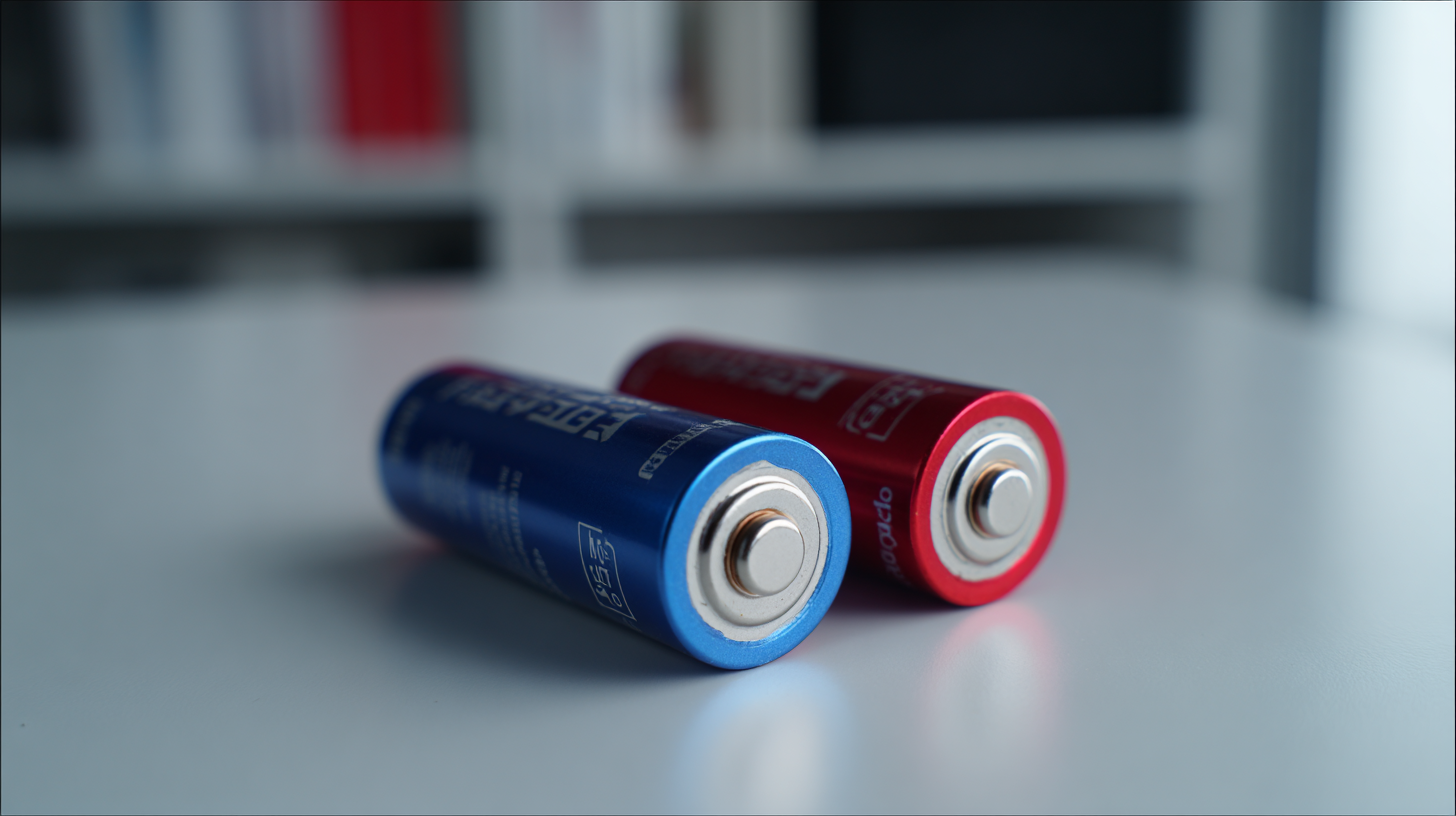
Future Trends in Lifep04 Battery Technology and Their Implications
The future of LiFePO4 (Lithium Iron Phosphate) battery technology holds promising trends that could significantly impact energy storage solutions. As the demand for renewable energy sources continues to rise, researchers are focused on enhancing the performance and lifespan of LiFePO4 batteries. Innovations such as advanced materials and nanotechnology are being explored to improve energy density and reduce charging times. These enhancements will not only make LiFePO4 batteries more viable for electric vehicles but also for large-scale applications like grid energy storage.
Additionally, the move towards sustainable and environmentally friendly energy solutions is shaping the development of LiFePO4 technology. With a lower environmental impact compared to traditional lithium-ion batteries, LiFePO4 is becoming a preferred choice for green energy initiatives. The increased emphasis on recycling and lifecycle management in battery production is expected to decrease resource consumption and mitigate waste, fostering a more circular economy. As these trends evolve, LiFePO4 batteries are likely to play a crucial role in the transition to sustainable energy systems.
Performance and Efficiency Comparison of LiFePO4 Batteries
This chart illustrates the performance and efficiency metrics of LiFePO4 batteries across various conditions and applications. The bars represent the energy density, cycle life, and charge/discharge efficiency of different configurations.
FAQS
: Lifep04 batteries typically exhibit a cycle life of over 2,000 charge cycles, making them a reliable choice for energy storage solutions.
Lifep04 batteries offer a significantly longer cycle life of over 2,000 cycles, while lead-acid batteries usually last around 500-1,000 cycles, highlighting Lifep04's long-term cost-effectiveness.
Lifep04 batteries deliver energy densities ranging from 90 to 160 Wh/kg, suitable for various applications like electric bicycles and power tools.
Lifep04 batteries offer charging efficiencies of around 95%, ensuring optimal energy usage during charging.
Lifep04 batteries provide thermal stability and a much lower risk of combustion compared to traditional lithium-ion batteries, enhancing their safety.
Lifep04 batteries' performance is not overly compromised by temperature variations, making them a reliable choice across diverse environments.
Future trends include advancements in materials and nanotechnology to improve energy density and reduce charging times, as well as a shift towards sustainable and environmentally friendly energy solutions.
Lifep04 batteries have a lower environmental impact compared to traditional lithium-ion batteries and are increasingly favored in the transition to sustainable energy systems.
The emphasis on recycling and lifecycle management is expected to decrease resource consumption and mitigate waste in Lifep04 battery production, fostering a more circular economy.
Lifep04 batteries are particularly suitable for high power output applications such as electric vehicles and renewable energy systems due to their faster charging and discharging rates.
Conclusion
In the blog "Exploring Lifep04 Batteries: A Comprehensive Comparison of Performance and Efficiency," we delve into the fundamental attributes that distinguish Lifep04 Batteries from other lithium-based solutions. The analysis highlights key performance metrics, demonstrating why Lifep04 batteries are a superior choice for applications ranging from household energy storage to electric bicycles. We further evaluate their efficiency compared to alternative technologies and explore the real-world implications of their use in various sectors.
Additionally, the blog addresses the sustainability aspect of Lifep04 Batteries, underscoring their minimal environmental impact and the long-term benefits of adopting these advanced energy solutions. As experts in lithium battery technology with over 27 years of experience, Roofer Electronics Technology (Shanwei) Co., Ltd. is committed to pioneering the future trends in Lifep04 battery technology, positioning ourselves to meet the evolving demands of the market and contribute positively to the energy landscape.
Related Posts
-
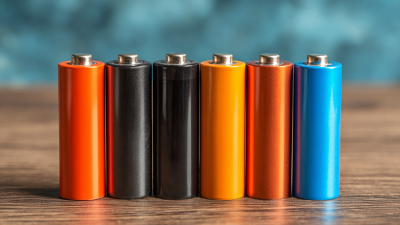
Ultimate Guide to Understanding Lifepo4 Battery Cell Technology and Its Benefits for Modern Energy Solutions
-
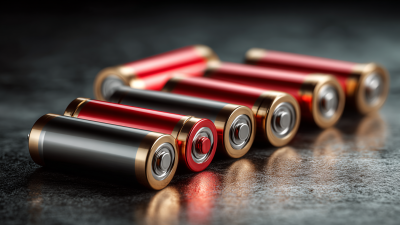
Top Strategies for Maximizing Efficiency with Lithium Iron Phosphate Lifepo4 Batteries
-
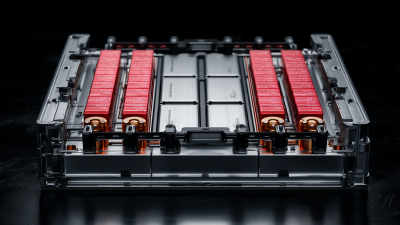
Why Lithium Iron Phosphate Batteries Stand Out Among Other Battery Technologies
-
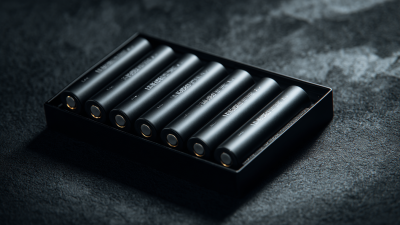
The Ultimate Guide to Lifep04 Batteries: Unlocking Excellence for Global Procurement
-
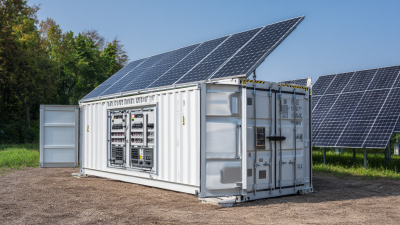
Advantages of Utilizing Battery Solar Lithium 51.2v Lithium Solar Battery for Sustainable Energy Solutions
-

Ultimate Guide to Understanding Li Ion Pack Technology and Its Market Potential





 business@roofer.cn
business@roofer.cn +86 13502883088
+86 13502883088






